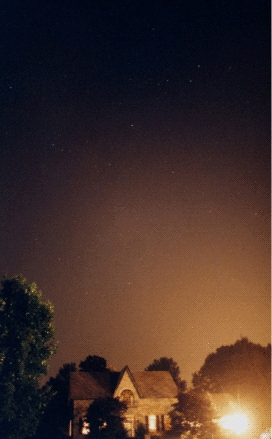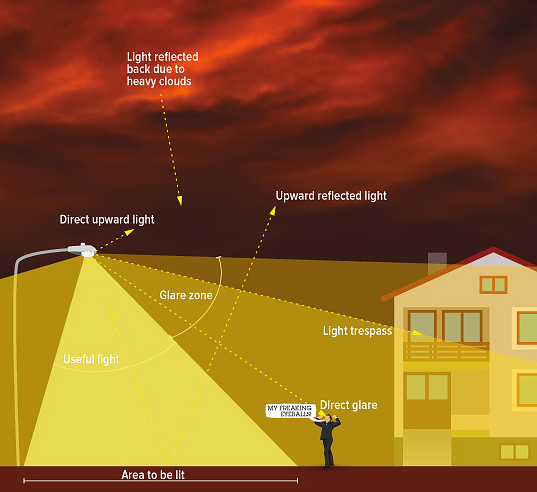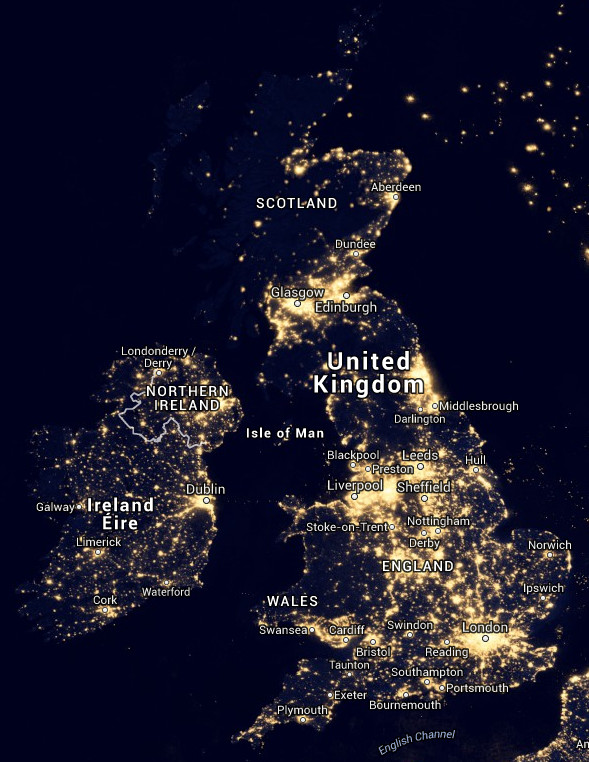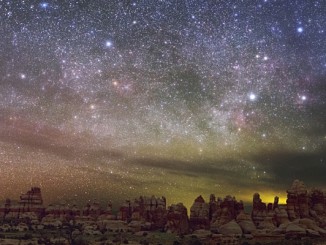Created in 2003 by high-school student Jennifer Barlow, International Dark Sky Week has become a worldwide event and a key component of Global Astronomy Month. Each year it is held in April around Earth Day and Astronomy Day. This year celebrations begin Monday, April 13th, and run through Sunday, April 19th.
In explaining why she started the week, Barlow said, “I want people to be able to see the wonder of the night sky without the effects of light pollution. The universe is our view into our past and our vision into the future…. I want to help preserve its wonder.”
International Dark Sky Week draws attention to the problems associated with light pollution and promotes simple solutions available to mitigate it. This year is also the International Year of Light.

The nighttime environment is a crucial natural resource for all life on Earth, but the glow of uncontrolled outdoor lighting has hidden the stars, radically changing the nighttime environment.
Before the advent of electric light in the 20th century, our ancestors experienced a night sky brimming with stars that inspired science, religion, philosophy, art and literature including some of Shakespeare’s most famous sonnets.
The common heritage of a natural night sky is rapidly becoming unknown to the newest generations. In fact, millions of children across the globe will never see the Milky Way from their own homes.
We are only just beginning to understand the negative repercussions of losing this natural resource. A growing body of research suggests that the loss of the natural nighttime environment is causing serious harm to the environment and human health.
For nocturnal animals in particular, the introduction of artificial light at night could very well be the most devastating change humans have made to their environment. Light pollution also has deleterious effects on other organisms such as migrating birds, sea turtle hatchlings, and insects.
Humans are not immune to the negative effects of light in their nighttime spaces. Excessive exposure to artificial light at night, particularly blue light, has been linked to increased risks for obesity, depression, sleep disorders, diabetes and breast cancer.

There is no clear scientific evidence that increased outdoor lighting deters crime. It may make us feel safer but it does not make us safer. The truth is bad outdoor lighting can decrease safety by making victims and property easier to see.
Glare from overly bright, unshielded lighting creates shadows in which criminals can hide. It also shines directly into our eyes, constricting our pupils. This diminishes the ability of our eyes to adapt to low-light conditions and leads to poorer nighttime vision, dangerous to motorists and pedestrians alike.
Another serious side effect of light pollution is wasted energy. Wasted energy costs money, contributes to greenhouse gas emissions and climate change, and compromises energy security.

The good news is that light pollution is reversible and its solutions are immediate, simple and cost-effective. Here are a few simple things you can do to confront the problem and take back the night:
- Check around your home. Shield outdoor lighting, or at least angle it downward, to minimise “light trespass” beyond your property lines. Use light only when and where needed. Motion detectors and timers can help. Use only the amount of light required for the task at hand.
- Talk to your neighbours. Explain that poorly shielded fixtures waste energy, produce glare and reduce visibility. Give them an IDA brochure from the IDA website.
- Become a citizen scientist with GLOBE at Night or the Dark Sky Rangers and document light pollution in your neighbourhood and share the results. Doing so, contributes to a global database of light pollution measurements.
- Photograph the night sky and enter the 2015 International Earth and Sky Photo Contest, which aims to educate the public about dark skies and light pollution.
- Explore Online. Join us on Facebook and Twitter and check out the IDA website, which will feature a different theme for each day of the week. Visit us daily and learn something new.
International Dark Sky Week Daily Themes
- Day 1 (Monday, 13th April): Why Light Pollution Matters.
Get a basic overview of light pollution, including what it is and how it happens. - Day 2 (Tuesday, 14th April): Environmental Harms.
See how light pollution puts animals and entire ecosystems at risk. - Day 3 (Wednesday, 15th April): Ill Health.
Learn how light at night can be dangerous to human health. - Day 4 (Thursday, 16th April): Energy Waste.
Find out how light pollution squanders energy and money and contributes to climate change. - Day 5 (Friday, 17th April): Safety & Crime.
Learn why more and brighter lights can actually make us less safe. - Day 6 (Saturday, 18th April): Stars are Our Heritage.
Discover why the night sky is important for humanity. - Day 7 (Sunday, 19th April): Take Action!
Find out how you can simply and quickly make a difference.



